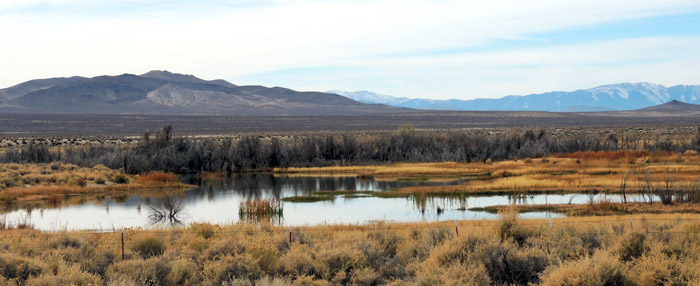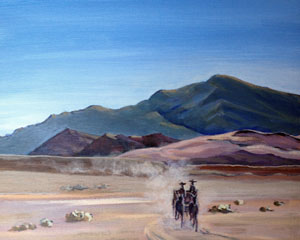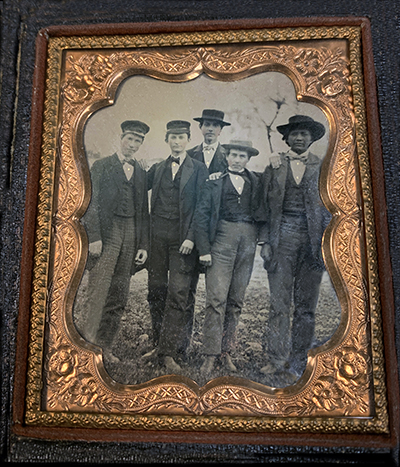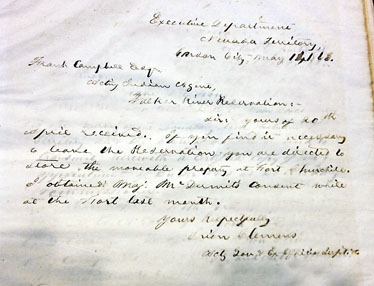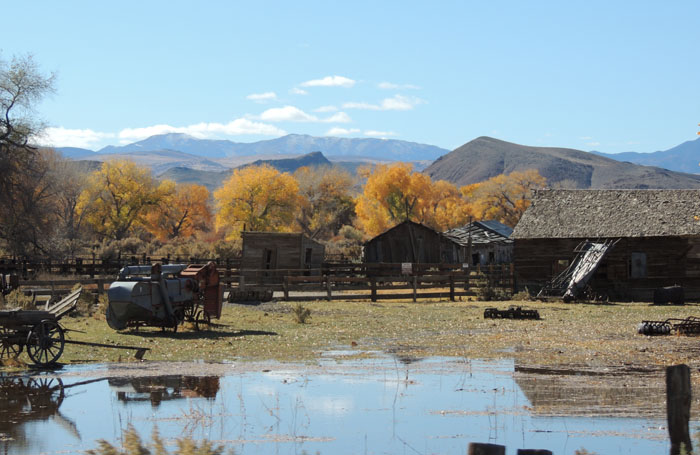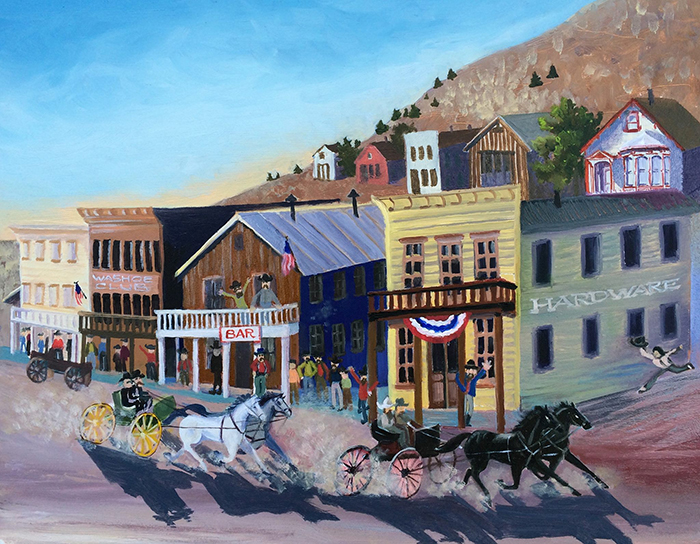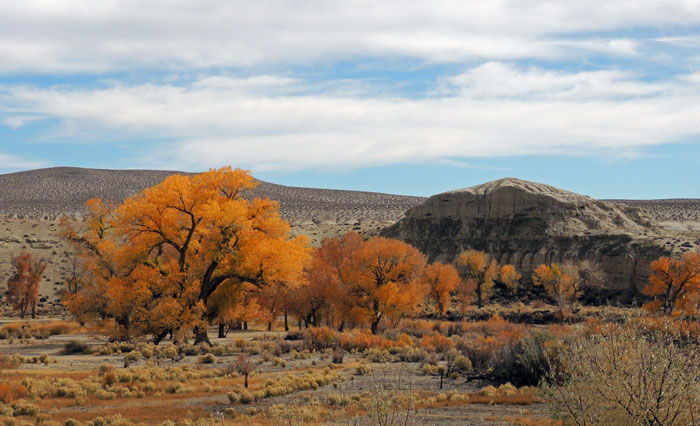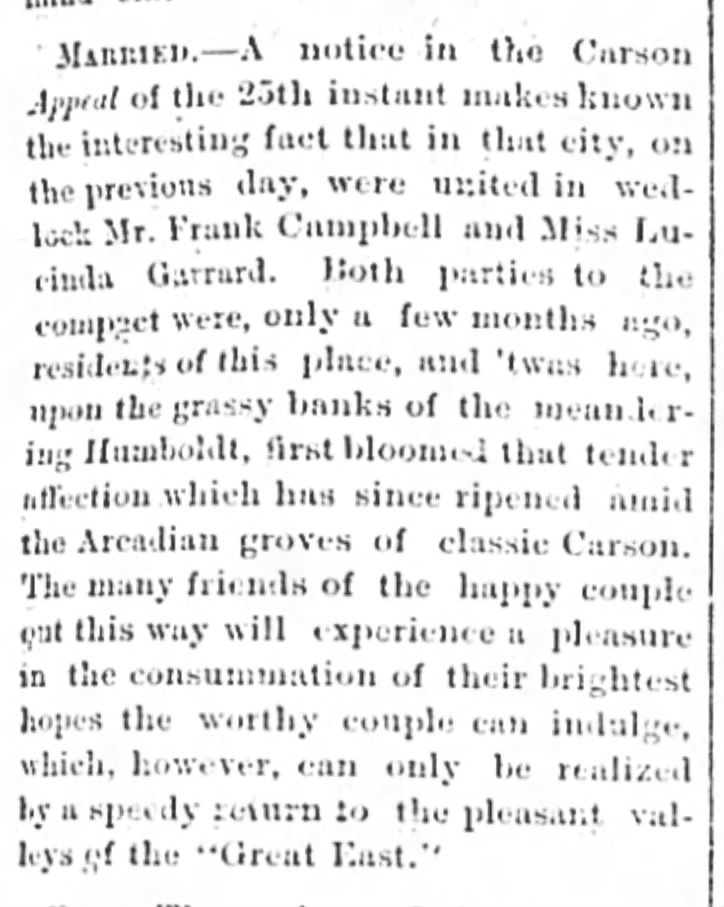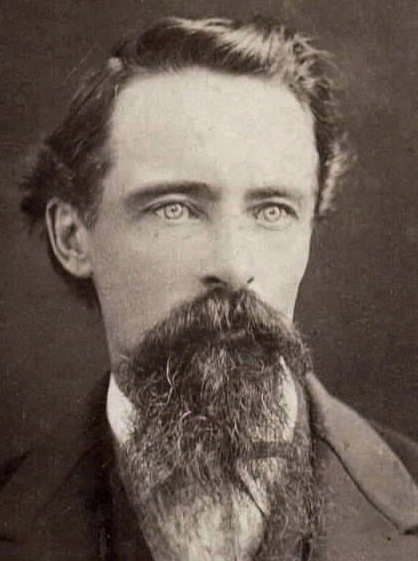
Franklin Campbell
Resident Farmer and US Indian Agent Walker River Reservation 1862-1872
Beautiful Walker River wetlands, Campbell Valley, Walker River Reservation, Nevada1860: Franklin Campbell emigrated west from Kalamazoo, Michigan in the spring of 1860 when he was 19 years old. He traveled with a wagon train that was driving stock via Fort Laramie to Carson City Nevada, arriving there in July, 1860. Upon arrival, Campbell lived in a canvas tent with some of his wagon train friends. He eventually lodged with Judge Cradlebaugh at his ranch in Carson Valley. The Carson Valley 1860 Census shows that he was employed as a clerk.

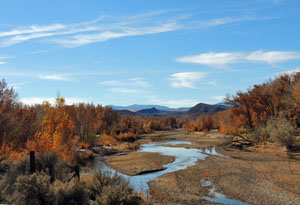
Weeks, NV - Carson River
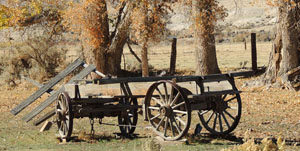
Flatbed wagon Ft. Churchill State Park

Pelicans
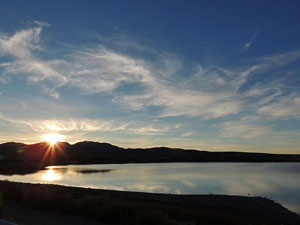
Webber Reservoir
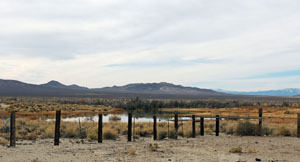
Campbell Valley corral
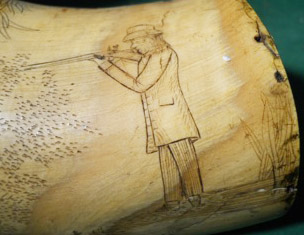
FRANK CAMPBELL'S LETTERS HOME & OFFICIAL U.S. AND
NEVADA INDIAN AGENCY REPORTS 1860 - 1877
1861 Franklin Campell and R.A. Washington deliver
government supplies to Carson Sink Paiute people.
.1861: Territorial Governor James W. Nye and Indian Agent Warren Wasson asked Franklin Campbell to go and live on the Walker River Reserve as the resident farmer / sub agent for $50 per month wages. Campbell accepted the job and wrote home in March of 1862: "I told them I would do it – I am waiting here now for Agent to come. I will then take a load of provisions over and stop at the Reserve. It is a good position and I mean to try and keep it."
Franklin Campbell first began working for the government as a teamster during the winter of 1861. He and interpreter Richard A. Washington delivered government issued supplies to the Northern Paiute tribes in the Carson Sink area. Washington was an excellent interpreter, he learned to read and write English beginning when he was 13 years old at the John Beck Boys Academy in Lititz, Pennsylvania. He was accompanied and enrolled there there in 1859 by Carson Valley Indian Agent Frederick Dodge, and 3 years later in 1861 he was escorted back to Nevada Territory by Carson City Agent Jacob T. Lockhart to work for the government. Washington was employed as official interpreter with Warren Wasson when Campbell arrived. Richard A. Washington taught Frank Campbell to speak the Paiute language, he was a good teacher.
John Beck Academy students 1861, Richard A. Washington (on right)
with classmates. Lititz, PennsylvaniaImage courtesy of https://www.lancasterhistory.org, Lancaster, Pennsylvania After the Pyramid Lake war in 1861, the Numu people (Northern Paiute) continued to lose vital resources to miners, settler intrusion and extreme weather. They lost pine nut orchards, rice fields, and their freedom to hunt game and find food away from the reservations became limited. The people were starving, Warren Wasson requested emergency food distributions from the government depot at nearby Fort Churchill.
1862: Governor Nye officially appointed Franklin Campbell in March 1862 as the Walker River Reservation Resident Farmer and Sub Agent. Campbell served from 1862 to 1872 in the post vacated by his friend and mentor Warren Wasson.
No successful farming was yet underway on the reservation, only natural bunch grasses that Resident Farmer Campbell, Washington and the residents were able to harvest. Campbell mentions 70 tons put up at his own expense the first year, which they were able to trade, along with some grazing privileges to the local ranchers in exchange for beef. Compounding their hardships catastrophic flooding occured the winter of 1861- '62 which destroyed Campbell's and R.A. Washington's first attempts at crops on the reservation.
Farming on the Walker River was almost impossible, intensified by drought, floods, freezing weather, destructive insects, lack of government funding for teams and equipment, pressures from hostile outlaws, intrusive settlers, sickness, hunger, politics, all contributed to the failure of the initial attempts at reservation crops that Frank Campbell and Richard Washington were trying to establish.
Campbell's future brother in law Charles D. Lane was also prospecting and ranching in Mason Valley during 1862.
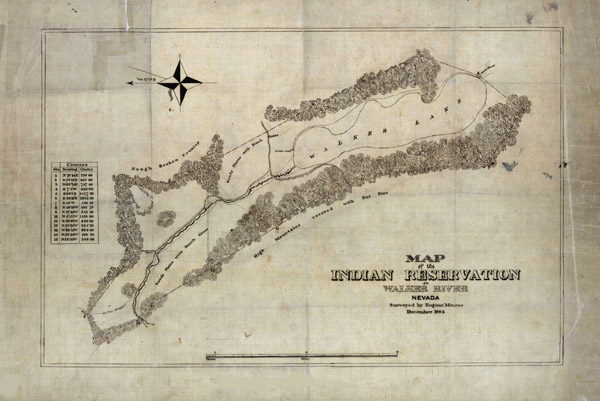
Click here for full size image1863 - 1864: Frank Campbell left his post at Walker River Reservation during October 1863 to October 1864, when he may have served with the Union Michigan Volunteers during the Civil War, as a private in the 1st Regiment, Michigan Light Artillery.
Interior Department - List of Indian Agencies Personnel - 1863
In 1864 Frank returned to his farmer - agent post at Walker River Reservation, their hardships continuted, for over the next 3 years the reservation received no farm equipment or government pay for the agency post. Despite it all, Campbell and Washington kept their friendly alliance, and carried on the business of reservation farming and ranching.
Governor Nye's Secretary, Orion Clemen's 1863 Letter to Acting Indian Agent Frank Campbell,Executive Department
Nevada Territory
Carson City May 11, 1863:
Frank Campbell Esq.
Acting Indian Agent
Walker River Reservation,
Sir yours of 20th April received. If you find it necessary to leave the Reservation you are directed to store the moveable prperty at Fort Churchill. I obtained Maj. McDermitt's consent while at the Fort last month.
Yours respectfully,
Orion Clemens
Acting Gov. Ex Officio Suptint....There was no moveable equipment other than a few tools and one government mule.
Fort Churchill State Park1865:
Buggy Race - William Sharon loses again to Alex Toponce and Frank Campbell, Virginia City 18681866: Franklin Campbell was able to obtain land in Mason Valley to farm and constructed Campbell ditch. This land was located west of the reservation and was eventually purchased by Miller Lux ranch.
1867: Alexander Toponce Reminiscences - Winter in Nevada 1867-68 stories of teamsters, trades and government contracting.
1872: Indian Agent Frank Campbell left the reservation for Wadsworth and did not continue working for the government after 1873.
1873: Frank Campbell served as state senator for Esmeralda County
Walker River Cottonwoods
1875: Frank Campbell married Lucy Toulmin Garrard ("Lute") during this time they lived in Oakland, CA. Until their home was ready in Carson City.
Campbell - Garrard marriage announcement, Elko Daily News, December 4, 1875
1880's
1880: The Campbells moved to American Falls Idaho, niece Franc Sterling visited there in the 1890's on her way to Detroit, then later Frank visited Franc and Paul Lane in Palisade NV 1899.
1900's
1903: Frank Campbell passed away in American Falls, Idaho, January 9, 1903, Lucy T. Campbell moved to Seattle near her sister Mary Garrard Simpson.
